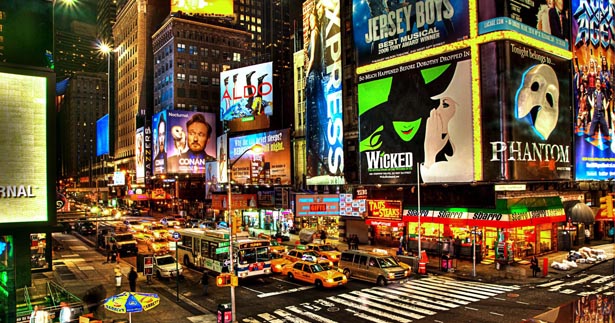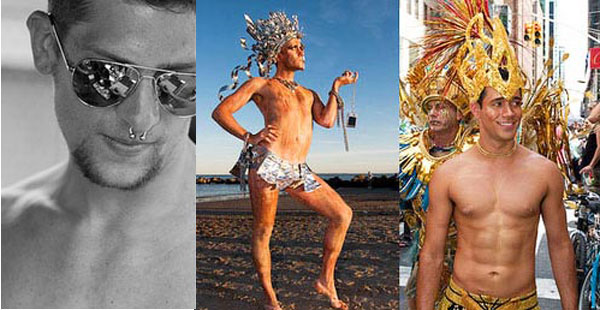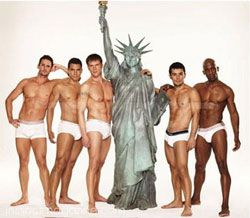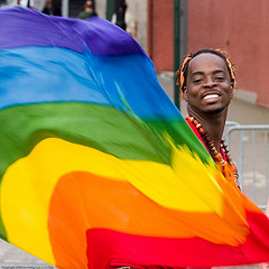Craig Pomranz Talks the New York Cabaret Scene with Channel13
CRAIG POMRANZ was recently asked to write an OP-ED piece on Cabaret, for Metro Focus / Channel 13. …
The word “cabaret” conjures up images ranging from smoke-filled rooms
(remember smoke?) to lap dances. We may have lost the smoke, but
cabaret is back in a big way in New York.
In a world where music is everywhere, on your iPod, cell phone and in
TV shows like “American Idol” and “Glee,” the unsung venues are the
cabaret rooms. These rooms include long-standing uptown music rooms
like Café Carlyle and the Algonquin Hotel’s Oak Room and less highfalutin venues like the Metropolitan Room on West 22nd Street, which offers a roster of both famous names and newcomers, as well as Don’t Tell Mama on West 46th Street and the Laurie Beechman Theater on West 42nd Street.
The artists who play at Joe’s Pub and the City Winery
meet the growing demand for live music in a more intimate space.
Burlesque seems to have been adopted by the 20-something set with rooms
like The Triad and Duane Park Café
(great food by one of my favorite chefs, Richard Overholt). A number of
other venues in the East Village/Lower East Side and Brooklyn,
including The Box and Galapagos (respectively) offer a diverse calendar of acts.
In these rooms performers strive for the chance to communicate with
an audience. Nothing’s needed except the singer, the song, a musician or
two, and the give and take of the audience. It’s the rare opportunity
to express yourself with lyrics that mean something and music that
shapes those lyrics indelibly. You can explore a vast treasury of great
songs and can take a familiar pop song and give it new life and meaning.
It is the job of a singer to convey the story behind the music. I can’t
tell you how many times someone has come up after a show to say they
had never really heard the lyrics to a pop song until I had sung it.
Part of the fun of cabaret is how audiences differ so much depending on the location and venue.
I was the first white male to sing at Sweetwater’s, an R&B club
in New York. It was fun because I got to work with the house band who
had toured with Aretha Franklin. As I took to the stage there was a
dubious silence, but once I began singing, I started hearing, “you tell
‘em, baby,” and “sing it child!” It took me a minute to get used to this
participatory crowd, where you would sing and they would answer you
right back — but I loved it!
In London, the audiences seem like very serious students, silent
throughout the song and until the pianist has played his very last note
and then politely applauding; afterwards they tell you how moved they
were. In Los Angeles, they sigh audibly and want to stay after the show
to discuss in detail every song you chose and where you found it. In New
York, they heckle (good-naturedly!) and, if they like it, applaud
enthusiastically even before the song is over. It’s all wonderful. And
you never know who you’re going to meet…
Early on, I had gotten a lot of attention from some record labels,
and I was working at a club called Mickey’s with famed singers Karen Akers and Cissy Houston.
Bob Feiden of Arista Records asked me to stay for Cissy’s show to get
my take on her daughter, whom Cissy was introducing in the act. Into the
spotlight stepped this pretty teenager with minimal makeup wearing a
sheath dress. Barely moving, she sang a very pure version of Barry
Manilow’s “All the Time.” Her beauty and simplicity were amazing. It
was, of course, Whitney Houston.
Craig Pomranz in the recording studio.
Photo courtesy of Craig Pomranz.
So many people think they can sing, and do, that it’s important that
the world of cabaret offers them a venue, especially in New York.
You
don’t have to have a beautiful voice. Some of the greats had little
range but were all soul. Frank Sinatra says he learned it all from Mabel Mercer, who often talked her way through a song. Insiders hail Fred Astaire
as a great singer, and some of the finest songs were written for him
(“The Way You Look Tonight” for example). He had a small voice but
exquisite rhythm, timing and a reserved emotional quality that could be
heartbreaking.
What prepares you to be a singer? Life!
What art form is more
immediate, able to change from night to night according to musical
fashion or even the headlines? In a world full of noise and clatter,
people yearn for the kind of intimacy a small music room provides. Like
all live performance, you never know what you’re going to get…But it’s
oh so worth the visit. So go out and support live music, be it a
cabaret, a piano bar or any other venue. Let yourself be transported,
and have a cocktail while you’re at it. Cabaret is a key part of New
York’s culture.
Craig Pomranz
is an actor, singer, dancer, recording artist and song stylist who
sings internationally. His new show in New York is “Love and the Clock”
at The Metropolitan Room.
















Leave a Reply